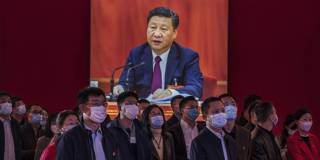OnPoint Subscriber Exclusive
Longer Reads provide in-depth analysis of the ideas and forces shaping politics, economics, international affairs, and more.

Where Is Xi’s China Heading?
Regardless of which top Chinese officials appear on stage alongside Xi Jinping at this month’s Party Congress, certain fundamental issues will remain at the center of debates about China’s place in the world. Any changes in leadership will reflect differences in style, not substance.
OXFORD – The Communist Party of China (CPC) is scheduled to begin its 20th National Congress on October 16. While this quintennial gathering is typically preceded by speculation about who will sit at the high table – the Standing Committee of the Politburo – bookmakers are no longer taking bets on who will occupy the center seat. An unprecedented third term for Xi Jinping as the country’s undisputed leader is the closest thing to what we can call a certainty.